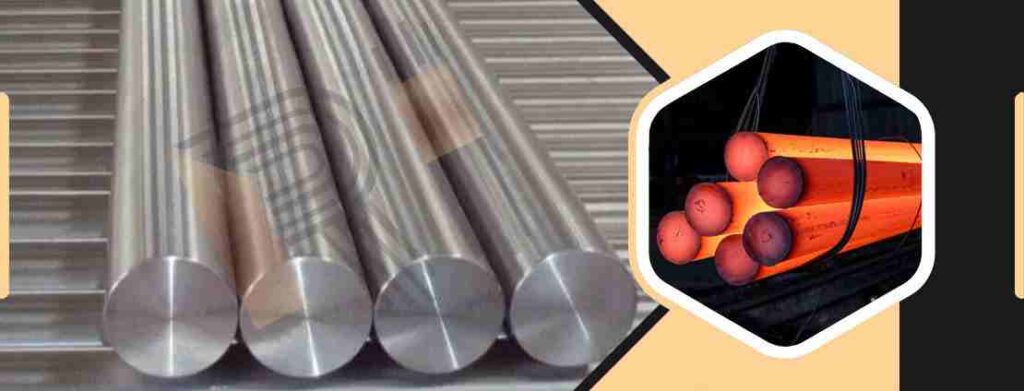Introduction
In the world of modern engineering and manufacturing, titanium has become a metal that industries simply cannot do without. It’s strong yet lightweight, durable yet corrosion-resistant, and capable of performing in the most extreme environments. Titanium rods, in particular, have found their place in everything from aircraft and automobiles to medical implants and offshore oil rigs. Because of these wide-ranging applications, titanium rod suppliers are now in exceptionally high demand across global markets.
As industries shift toward more efficient, high-performance materials, titanium’s unique properties are driving a massive surge in consumption. This article explores the reasons behind this growing demand, the industries fueling it, and why titanium rod suppliers are more important than ever before.
1. The Unique Advantages of Titanium Rods
Titanium is renowned for its high strength-to-weight ratio, corrosion resistance, and biocompatibility. These characteristics make it a standout choice compared to traditional metals like steel, aluminum, or copper.
Key Properties of Titanium Rods:
-
High Strength, Low Weight: Titanium offers the strength of steel but weighs about 45% less, making it ideal for sectors like aerospace and automotive.
-
Corrosion Resistance: It performs exceptionally well in seawater, acids, and high-temperature environments.
-
Biocompatibility: Titanium doesn’t react with human tissue, making it perfect for medical implants.
-
Temperature Stability: Titanium maintains strength and integrity even at extreme heat levels.
Because of these properties, industries that once relied on heavier or less durable materials are now switching to titanium, fueling demand for reliable suppliers.
2. Aerospace and Defense: The Strongest Driver of Demand
The aerospace and defense sectors have long been the largest consumers of titanium rods. In aircraft manufacturing, every kilogram matters—lightweight components translate to improved fuel efficiency and lower operational costs. Titanium rods are extensively used in airframes, landing gears, turbine blades, and fasteners, where strength and weight savings are critical.
In the defense sector, titanium’s ability to resist corrosion and withstand extreme temperatures makes it indispensable for military aircraft, naval ships, submarines, and armored vehicles. As countries continue to expand their aerospace and defense capabilities, titanium suppliers are experiencing consistent and growing demand from these industries.
3. The Medical Industry: Growth Fueled by Biocompatibility
Titanium’s biocompatibility—its ability to integrate with human bone and tissue without causing adverse reactions—has transformed the medical field. Titanium rods are used in:
-
Orthopedic implants (such as bone plates, screws, and hip replacements)
-
Dental implants and instruments
-
Spinal fixation devices and prosthetics
The global rise in surgical procedures, aging populations, and demand for durable medical devices has directly led to a spike in demand for medical-grade titanium rods. Because of the need for safety and precision, healthcare institutions prefer suppliers who can provide certified, traceable, and high-purity titanium rods.
4. Automotive and Motorsport Industries: The Lightweight Revolution
The automotive sector is undergoing a dramatic transformation as manufacturers seek to reduce vehicle weight to improve performance and fuel efficiency. Titanium rods are increasingly used in engine components, suspension systems, and exhaust parts due to their ability to endure heat and stress while remaining lightweight.
In motorsports, titanium is a favorite material for race cars and motorcycles because of its high strength and low mass, allowing for superior speed and agility. Even electric vehicle (EV) manufacturers are beginning to incorporate titanium rods into battery casings and chassis parts to enhance durability without adding extra weight.
As the world transitions to sustainable mobility, the demand for high-performance titanium components will only continue to grow.
5. Marine and Offshore Industries: Standing Strong Against Corrosion
Saltwater is notoriously harsh on metals, but titanium stands firm. Its exceptional resistance to corrosion makes it a top choice for marine applications such as:
-
Ship components and propeller shafts
-
Offshore oil rigs and drilling equipment
-
Desalination and seawater cooling systems
Unlike steel or aluminum, titanium rods do not rust or degrade when exposed to seawater, significantly reducing maintenance costs and increasing longevity. For this reason, shipbuilders and offshore engineering companies are now relying heavily on titanium suppliers for sustainable, long-lasting materials.
6. Energy and Industrial Manufacturing: Powering the Future
Titanium rods play a major role in energy generation and heavy industry. In nuclear and thermal power plants, they are used for heat exchangers, condensers, and reactor components that must endure high heat and chemical exposure.
In renewable energy, titanium is gaining traction in wind turbines, solar power systems, and hydrogen storage units, where both strength and corrosion resistance are crucial. Manufacturers in the chemical processing and oil & gas sectors also prefer titanium for equipment exposed to harsh acids and gases.
As global industries push for more efficient and sustainable energy systems, the use of titanium rods—and the suppliers who provide them—will continue to expand rapidly.
7. Technological Advancements Boosting Accessibility
One of the main reasons titanium’s use is increasing across industries is the advancement in production technologies. Previously, titanium was considered expensive and difficult to process. Today, with modern extraction methods, precision machining, and additive manufacturing (3D printing), the production of titanium rods has become more cost-effective and scalable.
These technological innovations allow suppliers to meet growing global demand while maintaining quality and affordability. As manufacturing methods evolve, more industries are discovering the benefits of titanium, resulting in higher demand for specialized suppliers.
8. Sustainability: A Green Metal for the Future
Sustainability is another key factor behind titanium’s rising demand. Titanium is 100% recyclable and has a long service life, reducing waste and environmental impact. Industries aiming for greener production processes are turning to titanium to align with environmental goals.
From lightweight aircraft that consume less fuel to corrosion-resistant infrastructure that lasts decades, titanium helps reduce the carbon footprint of multiple industries. Suppliers that follow ethical sourcing and sustainable production practices are increasingly preferred by eco-conscious manufacturers.
9. Global Market Growth and Industrial Expansion
According to market analysts, the global titanium industry is expected to grow at a CAGR of 6–7% over the next decade, driven by its increasing use in aerospace, medical, and industrial applications. Regions such as Asia-Pacific, North America, and Europe are leading the charge, with China emerging as a major titanium producer and exporter.
This surge in demand has created a thriving ecosystem for titanium rod suppliers who can ensure quality assurance, timely delivery, and compliance with international standards like ASTM and ISO.
Conclusion
The high demand for titanium rod suppliers is no coincidence—it’s the result of titanium’s unparalleled performance and versatility. From the skies to the seas, from surgical implants to electric vehicles, titanium continues to redefine what’s possible in engineering and innovation.
As industries evolve and sustainability becomes a top priority, titanium’s role will only grow stronger. Suppliers that can consistently deliver premium-quality titanium rods will remain essential partners in driving technological progress, industrial resilience, and a more sustainable future.



